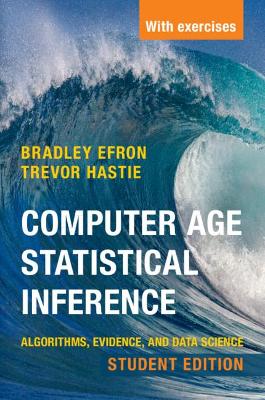Institute of Mathematical Statistics Monographs
2 total works
We live in a new age for statistical inference, where modern scientific technology such as microarrays and fMRI machines routinely produce thousands and sometimes millions of parallel data sets, each with its own estimation or testing problem. Doing thousands of problems at once is more than repeated application of classical methods. Taking an empirical Bayes approach, Bradley Efron, inventor of the bootstrap, shows how information accrues across problems in a way that combines Bayesian and frequentist ideas. Estimation, testing and prediction blend in this framework, producing opportunities for new methodologies of increased power. New difficulties also arise, easily leading to flawed inferences. This book takes a careful look at both the promise and pitfalls of large-scale statistical inference, with particular attention to false discovery rates, the most successful of the new statistical techniques. Emphasis is on the inferential ideas underlying technical developments, illustrated using a large number of real examples.
Computer Age Statistical Inference, Student Edition
by Bradley Efron and Trevor Hastie
Published 2 June 2021
The twenty-first century has seen a breathtaking expansion of statistical methodology, both in scope and influence. 'Data science' and 'machine learning' have become familiar terms in the news, as statistical methods are brought to bear upon the enormous data sets of modern science and commerce. How did we get here? And where are we going? How does it all fit together? Now in paperback and fortified with exercises, this book delivers a concentrated course in modern statistical thinking. Beginning with classical inferential theories - Bayesian, frequentist, Fisherian - individual chapters take up a series of influential topics: survival analysis, logistic regression, empirical Bayes, the jackknife and bootstrap, random forests, neural networks, Markov Chain Monte Carlo, inference after model selection, and dozens more. The distinctly modern approach integrates methodology and algorithms with statistical inference. Each chapter ends with class-tested exercises, and the book concludes with speculation on the future direction of statistics and data science.

